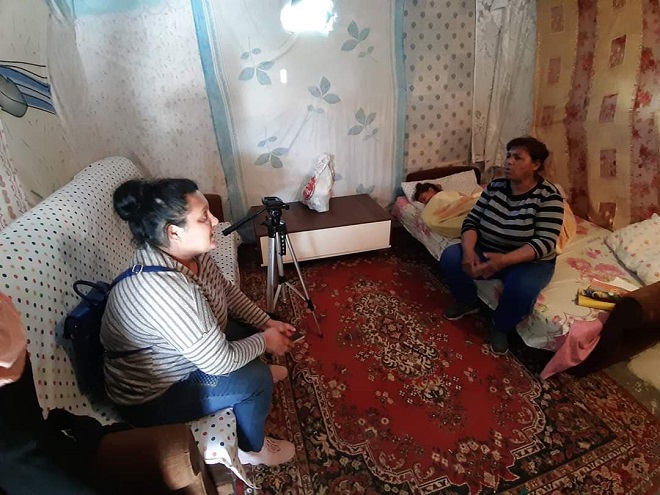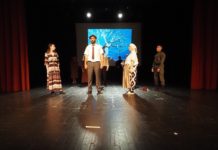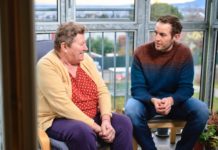Romina Sefa has been working on Rroma integration and human rights issues in Albania for seven years. Her community work experience, being a sociologist by profession, provided her a better insight into the understanding of the institutional solution of the problems and challenges that the Rroma community in that country is facing. Last year, she founded a non-governmental organisation Social Advocacy Centre, which is becoming an instrument through which Sefa and her team develop strategies to help Rroma exercise their public and private rights. Participating in the creation and amendment of existing laws as well as solving problems by going out on the field, door to door, are currently the most important activities of the organisation.
According to Sefa, the Rroma minority in Albania faces various challenges in everyday life, the most recent of which are related to COVID-19, where Rroma, as in other countries, especially from the region, try to access food in various ways. Governments have prescribed physical distancing measures, but in many overcrowded Rroma settlements this is impossible to implement.
In a situation where it is forbidden to leave the house, the Rroma cannot earn money for their basic living needs because their jobs are mainly related to selling used clothes or collecting recyclable waste.
Wild dumps in Albania are not uncommon, and the Rroma recycle everything that can be cashed in, often endangering their own health. Very often the search for food ends up in garbage cans because even though they are aware that it can be a virus carrier, Rromani families are forced to feed on other people’s remains. The condition of the houses in which the Rroma live is also a major problem. In their barracks, on the outskirts of Tirana, they live in unhygienic conditions, and this quality of life mainly affects young Rroma men and women who attend school, who are prevented from attending classes and access to teaching facilities due to the situation caused by the coronavirus.
For years, several organisations have been implementing projects aimed at strengthening the role of education, so the government has implemented various activities to support Rromani children in continuing education, but in my opinion the problem of dropping out is related to parental unemployment, family poverty and inadequate housing.
Discrimination in Albanian society is present everywhere, Sefa continues, but the changes are visible. Although hate speech is also present on social networks, institutions are changing their discourse and it is much easier to establish the dialogue necessary for joint work and progress.
EU ministers in charge of European affairs reached a political agreement in late March to open negotiations with Albania and the Republic of Northern Macedonia, and members of the European Council approved the conclusions a few days later. Prior to the first intergovernmental conference, Albania should fully adopt electoral reform, ensuring transparent funding of political parties and election campaigns, ensuring the continued implementation of judicial reform, and strengthening the fight against corruption and organised crime. Combating the emergence of unfounded asylum applications and ensuring repatriation and amending media laws are also priorities. It remains to be seen whether there will be a better life for the Rroma in Albania through the European Union.












